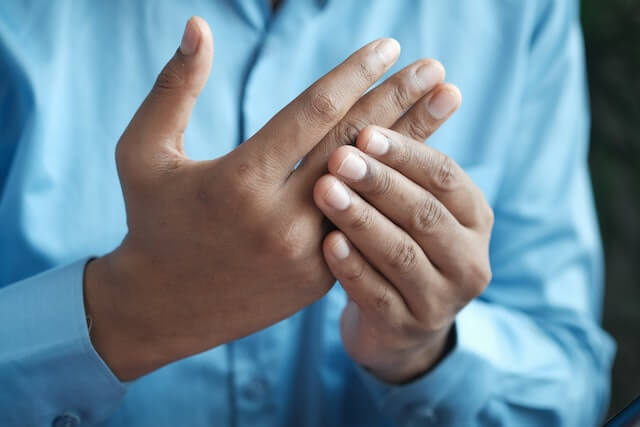Many of the adverse effects of consuming alcohol are well known. People have been making and drinking alcohol for thousands of years. Even though it may not be foremost on your mind as one of the problems drinking can cause, recent studies have suggested there’s a link between alcohol and inflammation in the body. How serious is inflammation caused by alcohol, and what can you do about it?
What is Inflammation?
Inflammation plays a role as part of the body’s immune system. It’s part of the natural response when something occurs that could potentially cause harm, such as viruses or bacteria. One example is swollen glands that occur in response to a sore throat. Another example of an inflammatory response is when an infected cut becomes red and warm. Neither of these feels great, but they are both signs that your body is fighting off some type of infection.
When a place on the body is injured or damaged, the immune system sends protein, fluid, and blood to aid in healing. It also stimulates swelling and heat to either repair or protect tissue that is damaged. After the injury has healed, the inflammation and infection go away. But there are times when these healing powers of the body go all wrong. Inflammation that is supposed to fight off sudden injury or infection becomes chronic. Sometimes, people experience a low level of constant inflammation. This can eventually impact their overall health negatively. When inflammatory cells stay active after working to kill off potential harm, they will eventually begin damaging healthy cells, organs, and tissue.
Does Alcohol Cause Inflammation in the Body?
Alcohol slows the central nervous system, which is why a person blacks out or suffers alcohol poisoning. Frequent trips to the bathroom are the result of the diuretic effects of alcohol. This can lead to dehydration, which thins the body’s mucus making it more difficult for the body to fight off infection. Alcohol also causes cardiovascular complications such as stroke or heart attack because it reduces the amount of oxygen in the blood. Alcohol causes inflammation in several different organs, such as the pancreas. It also causes the gut lining to become inflamed, which can lead to cramping or diarrhea. The term for an inflamed GI tract lining is ileitis. When an alcoholic has ileitis, consuming alcohol can exacerbate inflammation in the intestines.
Inflammation caused by alcohol consumption can lead to a variety of health conditions other than excessive weight gain. It can cause:
- Worsened Arthritis. Chronic inflammation of the joints can be painful enough, but for those who suffer from gout, an extremely painful type of inflammatory arthritis, can be worsened by consuming alcohol.
- IBD or Inflammatory Bowel Disease. Consuming alcohol often triggers flare-ups of IBD. This is due to the pro-oxidant effect as well as the damage it does to normal gut function.
- Fatty Liver Disease. Fatty liver disease occurs when there is a buildup of fats in the liver. Sometimes, people suffer from fatty liver disease without it being induced by drinking alcohol. However, it is very common in those with continued alcohol abuse.
- Chronic Intestinal Inflammation. When alcohol is metabolized in the GI tract, it causes chronic intestinal inflammation by disturbing tissue maintenance.
Signs and Symptoms of Inflammation Caused by Alcohol
There are many signs and symptoms of inflammation that are attributed to alcohol. You may notice your face swelling after a night of drinking. This should be enough to alert you to the fact that alcohol and bloating or swelling go together. Other than weight gain, the GI tract can become irritated and cause abdominal bloating. You may also notice stomach discomfort and gas.
For those who have alcohol-induced fatty liver disease, there may not be any symptoms initially, as many people never show any signs of the condition. But if you do show signs, they may include fatigue, loss of appetite, unexplained weight loss, or nausea and vomiting.
How Long Does Inflammation from Alcohol Last?
How long inflammation from alcohol lasts is largely individual, depending on how much damage was done to the immune system and a person’s unique ability to heal. Generally, the healing process can begin as soon as alcohol consumption stops, but it still takes time. Reducing alcohol-related inflammation offers many health benefits. It can take weeks or months for blood sugar levels to return to normal, depending on how much alcohol you were consuming. Joint and muscle pain caused by alcohol inflammation will gradually decrease. Mood changes should start soon after withdrawals cease. You may notice a quick return to healthy energy levels too.
Beyond recovering from alcohol inflammation, you’ll immediately start to reduce the risk of developing certain health conditions, including:
- Liver damage
- Depression
- Cancer
- Heart disease
- Obesity
- Diabetes
By changing your relationship with alcohol, you give your body and mind the chance and space to begin to recover and regain a natural balance.
How to Get Rid of Inflammation from Alcohol
The first thing to do to get rid of alcohol-induced inflammation is to stop consuming alcohol. Additionally, there are some natural ways to help reduce inflammation and its negative effects. Tobacco smoke can irritate the lungs and contribute to inflammation in the lungs, as well as increase the harmful effects alcohol has on the liver. Avoiding tobacco can help relieve inflamed bodily tissue so healing can begin.
Eating a healthy diet that includes plenty of fresh vegetables, fruits, healthy fats, and whole grains can be helpful. Nutrient-rich foods help provide the body with nutrients needed to repair damaged tissue as well as fight off infection. Regular exercise may also be helpful since it improves circulation and increases the production of anti-inflammatory chemicals made by the body. Stress can contribute to inflammation, so learning how to manage and reduce stress can help your body heal and repair faster.
Consuming specific natural supplements can also help aid in healing and reducing inflammation in the body. L-glutamine and other amino acids are beneficial for helping in the process of recovering from alcohol use. They can help ease withdrawal symptoms, but they can also help the body recover from alcohol-induced inflammation. Amino acids are found naturally in the body, but alcohol use causes them to be depleted. An inflamed GI tract may have trouble absorbing nutrients. Amino acids are beneficial for helping reverse an amino acid deficiency.
Another great benefit to taking amino acids including, L-Glutamine, is that they help the liver recover. Alcohol depletes the amino acids that help to combat fat accumulation in the liver. Supplemental amino acids can help fight fatty liver disease caused by alcohol consumption. Alcohol inhibits the way L-Glutamine is synthesized by the body, and this affects the absorption of amino acids. Supplemental L-Glutamine is helpful for helping an alcoholic overcome urges and withdrawals from alcohol addiction. It’s also useful for boosting mood. Since L-Glutamine lessens the cravings for carbohydrates, it can also help with weight-loss efforts.
The good news is that, in most cases, alcohol-induced inflammation is reversible. Taking some steps to help reduce inflammation naturally is beneficial, and supplementing with amino acids can help with recovery efforts. Are you ready to help reduce and reverse the inflammatory effects of past alcohol consumption naturally? Give BioRebalance Restore a try.
Dr. Rebeca Eriksen, PhD MSc BSc (Hons) RD, is the Co-Founder at BioRebalance. She has a PhD in Nutritional Genetics from Imperial College London, and over ten years of clinical experience designing custom nutritional repair regimens for patients recovering from alcohol addiction and other disorders.
- Dr. Rebeca Eriksenhttps://biorebalance.com/author/dr-rebeca-eriksen/
- Dr. Rebeca Eriksenhttps://biorebalance.com/author/dr-rebeca-eriksen/
- Dr. Rebeca Eriksenhttps://biorebalance.com/author/dr-rebeca-eriksen/
- Dr. Rebeca Eriksenhttps://biorebalance.com/author/dr-rebeca-eriksen/

